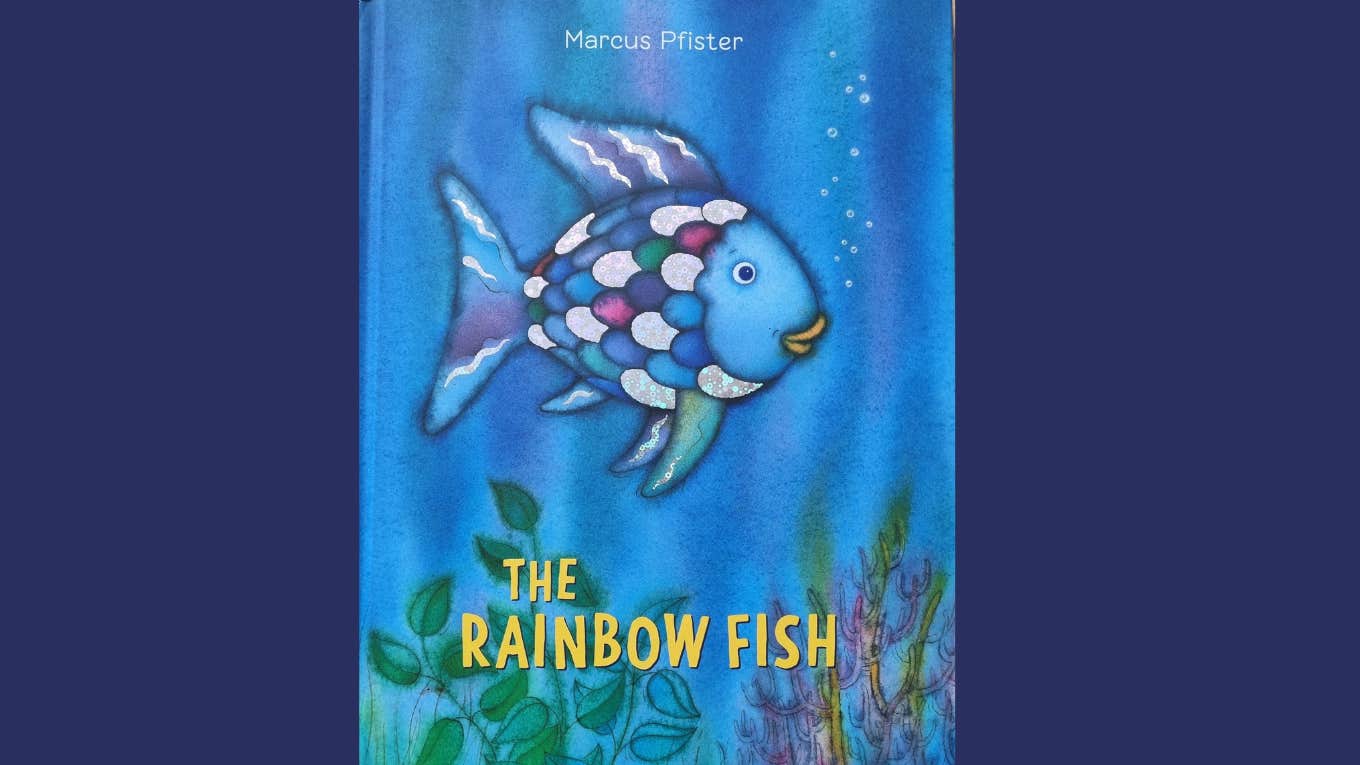5th-Grade Teacher Exposes The Concerning Lessons In The Classic Children's Book 'The Rainbow Fish'
A very colorful book with some problematic takeaways.
 Evan Hatfield | Shutterstock
Evan Hatfield | Shutterstock If you were in elementary school in the 1990s and early 2000s, you may remember being read the classic children’s book “The Rainbow Fish” by Marcus Pfister.
The book has become a popular read in modern-day elementary school classrooms. However, one teacher claims that the book is problematic and he started using it as an example to get his students to think critically about its problematic themes.
The fifth-grade teacher pointed out the concerning themes in ‘The Rainbow Fish’ book that may give children the wrong idea.
While Mr. Vuong said that the illustrations in the book are fantastic and that the author likely had “good intentions” while writing the book, he argued that the main takeaway was misleading.
As those of us familiar with the book know, Rainbow Fish is proud of his shimmering scales, which make him unique from the other fish. When one of them asks for one of his scales, and he says no, the rest of the group shuns him and forces him to be an outcast.
While Pfister's message was clearly about the importance of sharing, Vuong claimed he missed the mark.
According to Vuong, Rainbow Fish was well within his rights to refuse to give away his scales to the other fish.
“He doesn’t have to give up part of himself for anybody,” he said. “When Rainbow Fish said ‘no’ and drew a boundary, all of the other fish decided not to play with him. That made it more about how all the fish didn’t accept him because he didn’t give up any of his scales rather than them responding to his stuck-up behavior.”
“He only got acceptance when he gave up parts of who he was. He had to change to get others to like him,” Vuong noted.
This is not the kind of message Vuong wants to pass on to his students. Instead, he uses the book to teach them how to be critical thinkers.
“I opened up with what the theme was, and then I read the story without telling them my opinion,” he recalled about reading the book to his class.
After reading the book, the students made connections about it themselves.
While some students thought Rainbow Fish was selfish for not sharing his scales with the rest of the fish, others said he shouldn’t have had to buy his friends.
Vuong said the book sparked a meaningful conversation with his students about how real-life relationships should be conditional and not transactional.
 Monkey Business Images | Shutterstock
Monkey Business Images | Shutterstock
“You should never feel like you have to change yourself in order to feel like you belong,” he said.
Vuong had his students come up with an alternate ending — one that did not involve Rainbow Fish having to give up his scales in exchange for friends and instead let go of the idea that he was above everyone else due to his unique appearance.
The teacher noted how important it is for kids to really think about the themes in everything they read and think critically and independently.
As children, we are often taught that 'sharing is caring' and to share our toys, snacks, and anything else we may have as an act of kindness.
There is a big difference between children sharing the pile of toys they are playing with and sharing parts of themselves without thorough consideration.
Imagine someone saying to you, “I love your hair! It’s so pretty! Can I have some?” and being shunned by everyone when you refuse.
A similar concept is being portrayed in “The Rainbow Fish.” In order to have friends, he is expected to share a part of himself that he did not want to give up.
While many young readers seem to focus on Rainbow Fish’s initial selfishness, no one seems to talk about his fish friends stepping over his personal boundaries by demanding scales from him.
If there’s one lesson we should teach children from this book, it’s about setting personal boundaries and ensuring no one crosses them.
“Some people feel the need to please others, often without realizing that by saying ‘yes’ to everything, they are also saying ‘no’ to something else that might be equally important to them,” Sahar Andrade, award-winning leadership coach, author, and speaker, exclusively told Forbes.
This has negative effects on one’s overall self-esteem, confidence, and overall well-being.
Even if Rainbow Fish was stand-offish at the beginning of the book, he was well within his personal rights to keep his scales for himself. They were a part of his identity, and none of the other fish should have demanded that he give them up in order to gain entry into their social circle.
Overall, Vuong is giving his students the right idea and has a thoughtful take on “The Rainbow Fish.”
Megan Quinn is a writer at YourTango who covers entertainment and news, self, love, and relationships.

